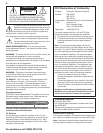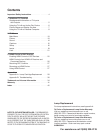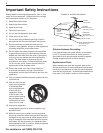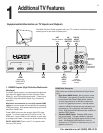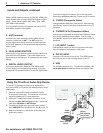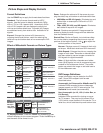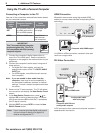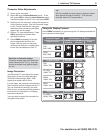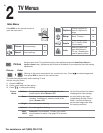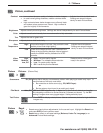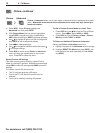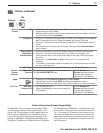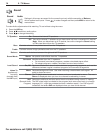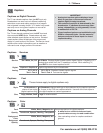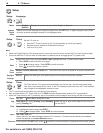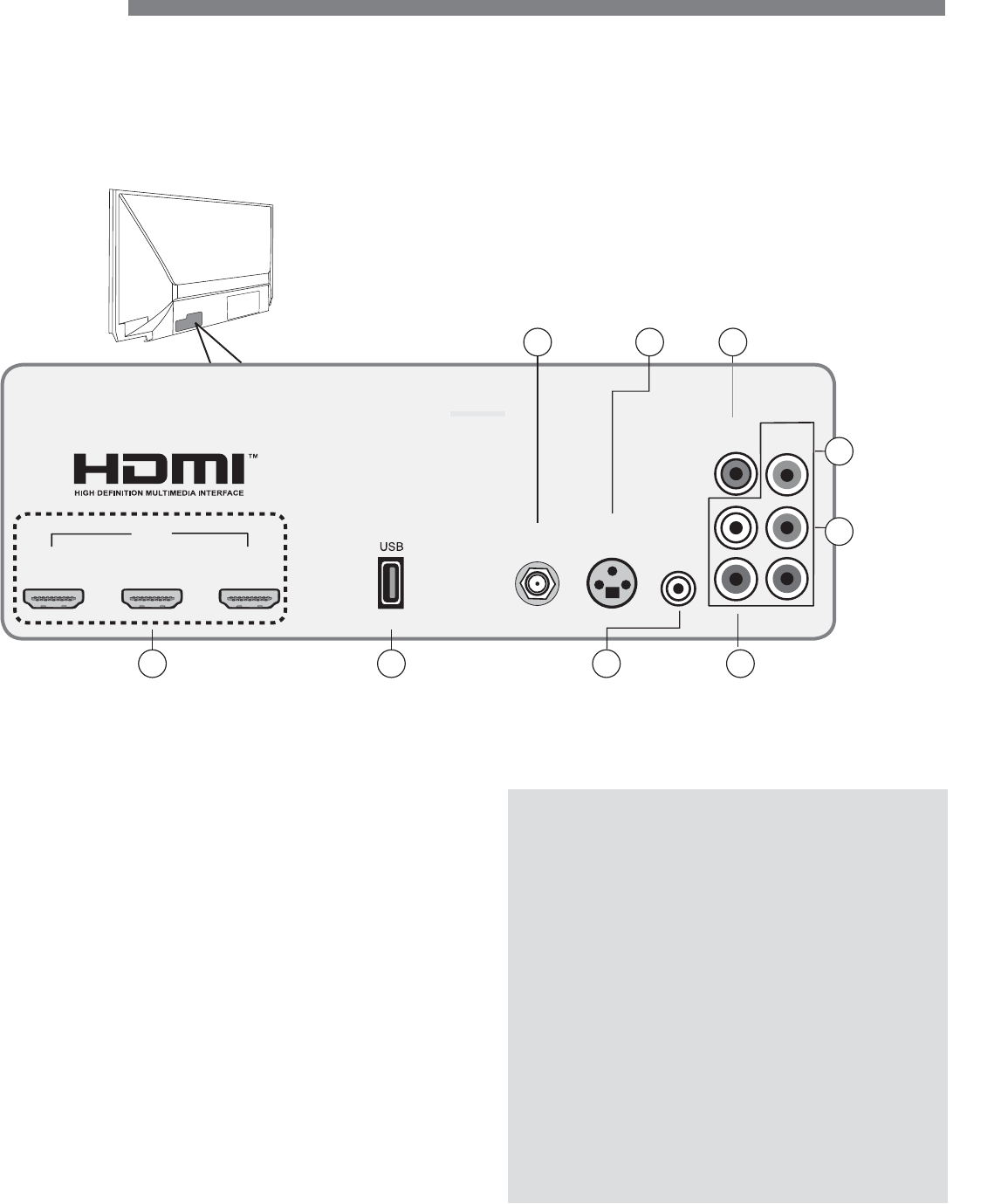
5
For assistance call 1(800) 332-2119
Additional TV Features
1
Supplemental Information on TV Inputs and Outputs
The Basic Owner’s Guide supplied with your TV contains connection diagrams
showing how to use most of these jacks.
1. HDMI
®
Inputs
(High-Definition Multimedia
Interface)
The HDMI inputs support uncompressed standard and
high-definition digital video formats, bitstream Dolby
Digital 5.1, and PCM digital stereo audio. These inputs
are HDCP (High-Bandwidth Digital Copy Protection)
compliant.
Mitsubishi recommends you use high-speed HDMI
cables to connect newer source devices incorporating
HDMI technology. High-speed cables bring you the full
benefits of Deep Color.
These HDMI inputs can also accept digital DVI video
signals. To connect a device’s DVI output to the TV’s
HDMI input, use an HDMI-to-DVI adapter or cable plus
an analog audio cable. Connect the audio cable to the
DVI/PC AUDIO INPUT
jack on the TV to receive audio
from your DVI device.
L/R
Analog
stereo audio
inputs
USB DVI/PC
INPUT
Audio
input
DIGITAL
AUDIO
OUTPUT
Y
Composite
video input
Y Pb Pr
Component
video input
ANT
Coaxial antenna
input
3D
GLASSES
EMITTER
1
2
3
HDMI
Pb
Pr
INPUT 1
DIGITAL
AUDIO
OUTPUT
DVI/PC
INPUT
AUDIO
Y
3D
GLASSES
EMITTER
ANT
L
R
1 9
2 3
8
4
7
6
5
HDMI
Inputs are
HDMI HDCP
compliant.
H DMI Cable Categories
HDMI cables are available as Standard and High-Speed
types.
• High-Speed HDMI Cables. Blu-ray players, newer
DVD players, video games, 3D content, and set-top
boxes require High-Speed HDMI cables, suitable
for clock frequencies up to 340 MHz or data rates
of up to 10.2 gigabits per second. Use high-speed
cables for 1080p HD signals carrying extended color
encodings (i.e., 30 or more bits, also called Deep
Color). High-Speed HDMI cables are also suitable for
standard HDTV signals.
• Standard HDMI Cables. Standard HDMI cables
may be unmarked. They are suitable for standard
HDTV 720p, 1080i, and 1080p signals with 8-bit color
depth. Use Standard HDMI cables for clock fre-
quencies up to 74.25 MHz or data rates of up to 2.23
gigabits per second.




